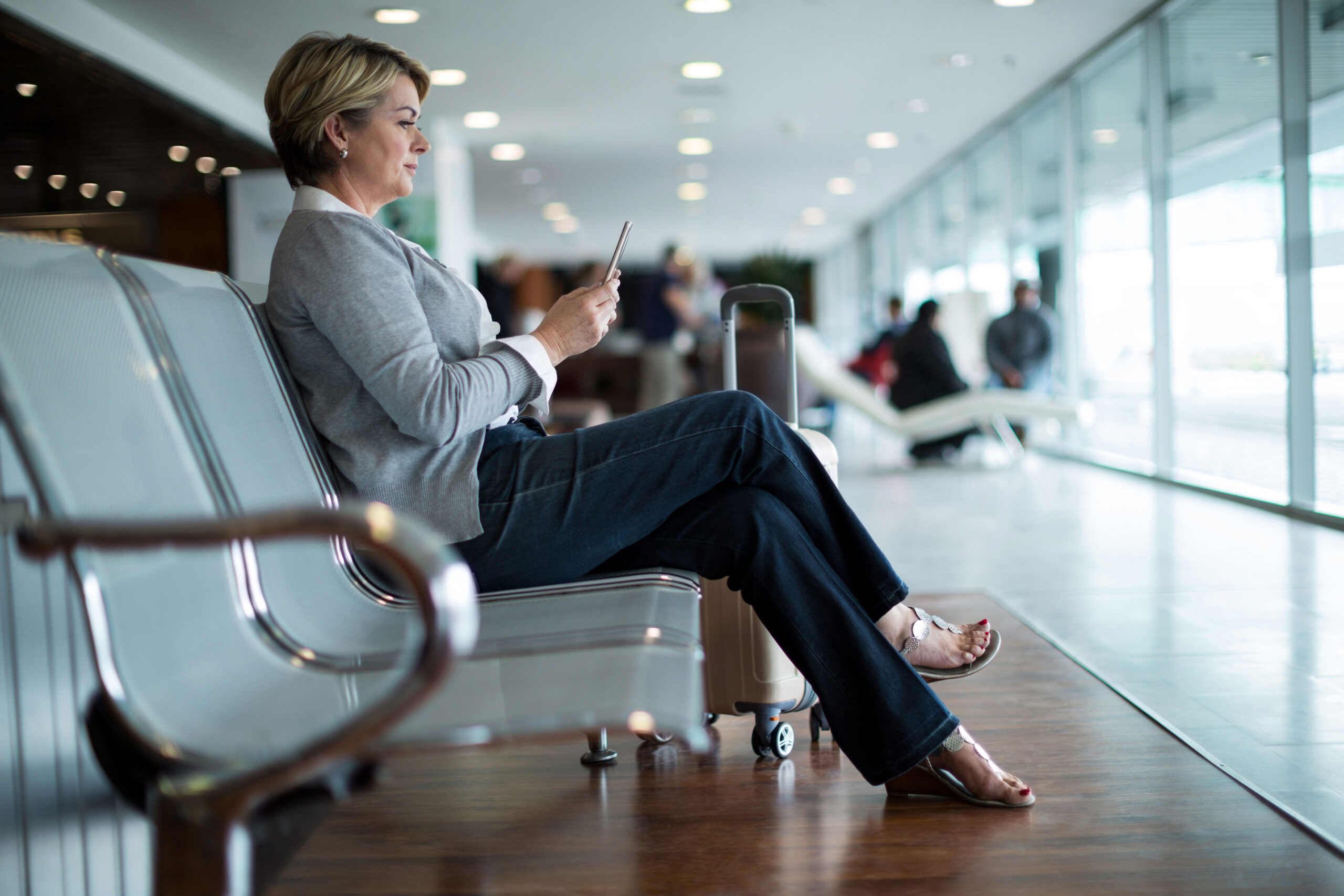Sleep
Why Vacation Travel Can Create Sleep Disruptions
Aside from Christmas, the summer months of July and August are by far the most common months for people to travel or go on vacation. While vacation travel is exciting, it can also lead to sleep disruptions, resulting in a weakened immune system.
There are many reasons why vacation travel can lead to sleep disruptions. It could be that you’re driving when you would usually be sleeping, you’re suffering from travel fatigue, or you traveled to a different time zone, and your internal clock is out of whack. Regardless of the reason, it’s important to find a way to get enough sleep while you’re traveling so that you can make the most of your vacation.
If you want to know more about why vacation travel can disrupt your sleep schedule, you’ve come to the right place. In addition to exploring the cause of sleep disruptions, this article will also look at how to avoid them and get your sleep schedule back on track.

Why Does Travel Create Sleep Disruptions?
There are several reasons why vacation travel can result in unwanted sleep disruptions or occasional sleeplessness.
Travel Fatigue
Travel fatigue is a broad term that refers to many different things. In general, however, travel fatigue has to do with the stress, anxiety, and physical weariness of traveling. Even though you might be excited about reaching your destination, not everyone loves the journey to get there.
Here are some of the most common stressors that lead to travel fatigue.
- The stress of traveling with your family or a group of people
- Having a fear of flying
- Traveling with a newborn
- Experiencing a travel delay or flight cancelation
- Changes in when you eat and sleep
- The stress of feeling confined or restricted
While these are the main causes of travel fatigue, it could result from any number of things and refers to anything that stresses you out about traveling.
Jet Lag
Jet lag is one of the most common and well-known causes of sleep disruptions during vacation travel. Jet lag occurs when you travel via airplane and fly to a different timezone. Because you’re doing this so quickly in a plane, your internal clock doesn’t have time to adjust to the time change.
For example, if you’re flying from the Pacific to the Eastern time zone, your mental clock will be three hours ahead. This means that even though it’s 10 o’clock when your plane lands, it will feel like 7 o’clock. So, if you normally go to bed at 10 PM in your time zone, you won’t be ready for sleep until 1 AM in your current time zone. This sets off a chain of events where you sleep later into the following day, stay up later at night, and the cycle continues.
Environmental Changes
Generally speaking, people are creatures of comfort and habit. As a result, it can be tough to get comfortable enough to sleep in a new environment, depending on where it is. It can also throw you off if you’re trying to sleep in a new bed or are using a new pillow and simply can’t get comfortable enough to fall asleep.
Schedule Changes
Even if you don’t travel to a different time zone, the fact that traveling affects your schedule can lead to sleep disruptions. People tend to stay up later on vacation, eat at different times, and do other things outside their regular schedule. This can lead to changes in your circadian rhythm and sleep schedule and cause sleep disruptions.
How to Avoid Sleep Disruptions While Traveling
If you want to reap the benefits of vacation travel without unwanted sleep disruptions, here’s what you need to know.
Adjust Your Schedule Beforehand
If you know you’re traveling to a different time zone or that your vacation travel will affect your sleep schedule, adjust your sleep schedule beforehand. For instance, if you’re traveling to a time zone two hours behind your own, start going to bed two hours earlier than usual. This will make the time change much less destructive than it would otherwise be.
Bring Your Own Pillow and Other Sleep Aids
If you’re worried that your new environment will be uncomfortable, bring the comforts of home with you. This could mean bringing your own pillow, a sleep mask, sleep music, headphones, and other things that will relax you and help you sleep.
Take Sleep Supplements
While certain supplements like melatonin and sleeping pills have unwanted side effects, natural supplements can help you fall asleep without any ill effects. This includes calcium and magnesium, herbs such as chamomile and ashwagandha, amino acids, and other natural substances that promote relaxation. If you want to combine all these supplements into one package, try Somni from Lane Innovative!*
Plan Ahead to Reduce Stress
One of the biggest reasons people struggle with occasional sleep disruptions during vacation travel is simply because they don’t plan enough. Most of the issues and stressors that arise while traveling happen because of poor planning. By simply plotting your travel course and predetermining how to deal with obstacles, you can avoid stress that leads to sleep disruptions.
Use Naps and Caffeine Accordingly
There’s also a good chance that you might have to alter your usual caffeine intake and nap schedule. For instance, if you’re traveling to a time zone that’s several hours ahead of you, you should avoid taking naps and drinking caffeine. This will make you more tired in the evening and increase the likelihood that you can fall asleep at a decent hour.
On the other hand, if you’re traveling to a time zone that’s behind you and you need to stay up later, consider taking an afternoon nap and upping your caffeine intake.
Have Comfortable Sleep Accommodations
Finally, one of the most critical factors in avoiding sleep disruptions is ensuring you have a comfortable place to sleep. To achieve a comfortable sleep environment, try to make everything exactly as it is at home.
- Adjust the room’s temperature accordingly, keeping in mind that cooler temperatures often provide better sleep.
- Keep the room as dark as possible.
- If you have the option, choose a quiet room free of distractions.
By planning ahead, staying comfortable, and maintaining healthy dietary and exercise habits, you can avoid the hazards that lead to vacation travel sleep disruptions.
References
Travel & Sleep: Potential Sleep Disruptions & Tips | Sleep Foundation
Struggling to Sleep While Traveling? How to Sleep Better and Make The Most of Your Trip (webmd.com)
https://sleepopolis.com/education/beating-travel-insomnia-a-travelers-guide-to-better-sleep/
6 Tips for Better Sleep When You Travel | Johns Hopkins Medicine
Like? Share with your friends
Learn More Information on How Somni Can Offer You a Better Sleep Experience*

